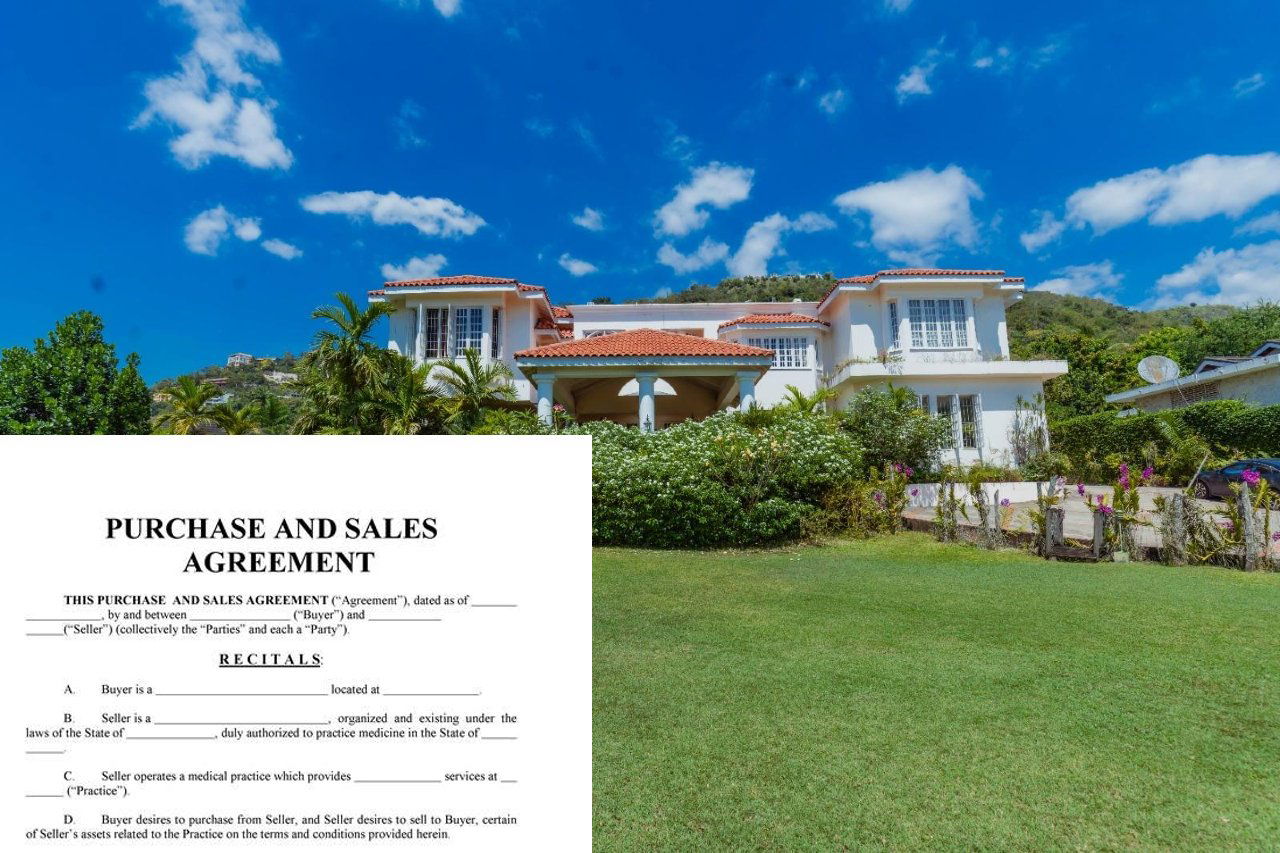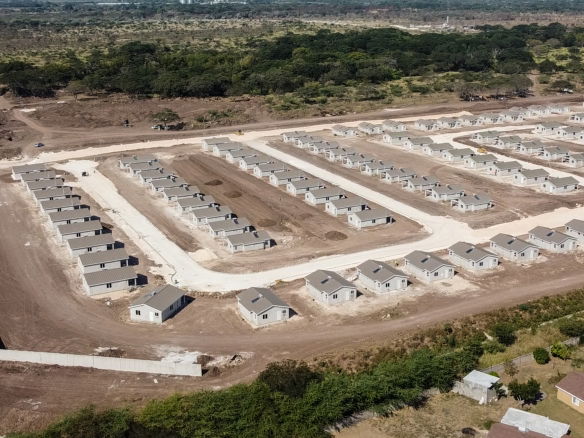The allure of acquiring property in Jamaica, with its rich culture, stunning landscapes, and promising investment potential, is undeniable. However, when it comes to purchasing property, the process can be fraught with challenges, particularly when the seller is unable to provide proper documentation for the property. While buying a house or land without a title may seem like a tempting opportunity, especially if the seller is someone you know or the deal appears attractive, this decision carries significant risks that could have long-term legal and financial consequences.
Understanding the Risks: What Does It Mean to Purchase Without a Title?
In Jamaica, the title serves as the legal proof of ownership. Without it, the legitimacy of the sale comes into question, as the seller may not have the legal authority to transfer the property to the buyer. This lack of documentation can lead to numerous complications:
- Lack of Legal Ownership: Without a valid title, the buyer cannot obtain legal ownership of the property. This means that any claims of ownership are vulnerable to disputes from third parties, potentially resulting in legal battles that could take years to resolve.
- Uncertain Ownership Status: When a property lacks a title, it becomes challenging to verify the seller’s claim to ownership. The absence of documentation raises doubts about the property’s history, making it difficult to determine if there are any existing liens, encumbrances, or competing ownership claims.
- Inability to Secure Financing: Most financial institutions in Jamaica require clear title documentation as a prerequisite for mortgage approval. Without a title, buyers may find themselves unable to secure financing, limiting their options and possibly causing the transaction to fall through.
- Limited Marketability: Properties without a clear title are difficult to resell, as potential buyers are likely to be wary of the legal risks involved. This can significantly affect the property’s market value and the owner’s ability to realize a return on investment.
- Legal and Financial Risks: Purchasing property without a title exposes buyers to the possibility of fraudulent transactions, adverse possession claims, and costly legal disputes. Without proper documentation, the path to asserting ownership can be arduous and expensive.
Real-World Concerns: A Young Family’s Dilemma
Consider the case of a young father and husband who were interested in purchasing a house from an elderly woman he knew. The problem? The seller did not have any papers for the house or land. Understandably, the prospective buyer was concerned about the potential risks and sought advice on how to protect his family and investment.
The professional advice he received underscores the gravity of the situation. The seller’s inability to provide a registered title or even a common-law title poses a significant barrier to a legitimate transaction. In Jamaica, once a permanent structure, such as a house, is built on land, it becomes part of the land, and the absence of clear ownership documentation for the land renders the entire transaction legally questionable. You can read more about this specific scenario here.
Essential Steps to Protect Yourself
For those who find themselves in a similar situation, here are some crucial steps to consider before proceeding with the purchase:
- Conduct Thorough Due Diligence: Before making any decisions, visit the National Land Agency or the Land Titles Division to conduct a search using the address of the property. This search will reveal whether the land has a registered title and provide critical information about the property’s ownership history. You can also obtain property documents online at eland Jamaica
- Seek Legal Counsel: Engage the services of a qualified real estate attorney with experience in Jamaican property law. Your attorney can help you navigate the complexities of the transaction, ensure all legal requirements are met, and protect your interests throughout the process.
- Negotiate a Preliminary Agreement: If the seller is unable to provide a title, consider negotiating a preliminary agreement in which the seller commits to applying for a registered title. This agreement should outline the steps the seller will take to obtain the title and the financial contributions you may make to assist with the process. However, this agreement is not the same as a sale and purchase agreement, it’s a step toward enabling a legal sale in the future.
- Evaluate the Risks: Even with a preliminary agreement in place, the process of obtaining a title can be uncertain and time-consuming. If the seller’s claim to the property is weak or if the chances of successfully obtaining a title are low, it may be wiser to walk away and seek other opportunities.
The Legal Process of Title Acquisition
In cases where the property has never been registered or the ownership status is unclear, the seller may need to apply for a registered title through adverse possession. Adverse possession is a legal doctrine that allows a person who has openly occupied land for a certain period (typically 12 years in Jamaica) to apply to be recognized as the legal owner. However, this process is complex and requires careful documentation and legal support.
For the seller to successfully claim ownership through adverse possession, they must demonstrate that they have occupied the property without interruption and without paying any rent or acknowledging another person as the owner. This process can be lengthy and may require the assistance of a lawyer experienced in real property matters.
You can find some great information in our last post about obtaining title for a property that may be helpful if you need to move forward with the process.
Tread Carefully and Protect Your Investment
Purchasing property without a title in Jamaica is a high-risk endeavor that should only be considered after thorough research and professional legal advice. While it is possible to navigate the complexities of such a transaction, the potential for legal disputes, financial losses, and long-term stress is significant. If you are considering buying a property without a title, take the time to conduct due diligence, seek expert advice, and carefully evaluate whether the risks are worth the potential rewards.
In the end, protecting your family and your investment should be your top priority. In some cases, the best decision may be to walk away from the deal and find a property with clear, undisputed ownership.
FAQs on Purchasing Property in Jamaica Without a Title
Is it legal to purchase property in Jamaica without a title?
While it is possible to purchase property in Jamaica without a title, it is not recommended. Buying property without a title comes with significant legal and financial risks, as the seller cannot legally transfer ownership without proper documentation.
What are the risks of buying property without a title in Jamaica?
The risks include lack of legal ownership, potential disputes over the property, difficulty in securing financing, limited marketability of the property, and exposure to fraudulent transactions or legal challenges.
Can I secure a mortgage for a property in Jamaica if there is no title?
Most financial institutions in Jamaica require clear title documentation before granting a mortgage. Without a title, it may be difficult or impossible to secure financing for the property.
What steps should I take if the seller doesn’t have a title?
You should conduct thorough due diligence, including verifying ownership with the National Land Agency. Consider having the seller apply for a title if they have a legitimate claim to the property. Seek legal advice to navigate this process safely.
Can I help the seller obtain a title for the property?
Yes, you can assist the seller in obtaining a title by covering some of the costs involved. However, this should be part of a formal agreement, and you should work closely with a qualified real estate attorney to ensure your investment is protected.
What is adverse possession, and can it apply to a property without a title?
Adverse possession is a legal doctrine that allows someone who has openly occupied a property for a certain period (usually 12 years) to apply for legal ownership. If the seller qualifies for adverse possession, they can potentially obtain a title and legally transfer the property to you.
Should I enter into a contract if the seller doesn’t have a title?
If you decide to proceed, it’s crucial to enter into a contract that outlines the seller’s obligation to obtain a title. The contract should also protect your rights, ensuring that any money you invest in helping secure the title is credited towards the purchase.
What should I do if the seller cannot obtain a title?
If the seller cannot obtain a title or if there are uncertainties about their claim to the property, it may be best to walk away from the transaction to avoid future legal and financial complications.
Can a lawyer help me buy property in Jamaica without a title?
Yes, hiring an experienced real estate attorney is essential when considering the purchase of property without a title. They can guide you through the due diligence process, draft necessary contracts, and help you understand the legal risks involved.
What is the National Land Agency, and how can they help in this process?
The National Land Agency (NLA) in Jamaica is responsible for land registration and management. They can help you verify the ownership status of the property and determine if the land is registered under the Registration of Titles Act.
Purchasing property in Jamaica without a title can be a complex and risky process. While there are circumstances where it might be possible to proceed, it’s crucial to approach such a transaction with caution and the guidance of experienced legal professionals. Ensuring that all necessary steps are taken to verify ownership and secure a title can save you from potential legal battles and financial losses in the future. Always prioritize securing clear and legal ownership to protect your investment and enjoy peace of mind in your property purchase. You can explore some potential properties here if you are looking to invest in real estate: Explore Properties.





